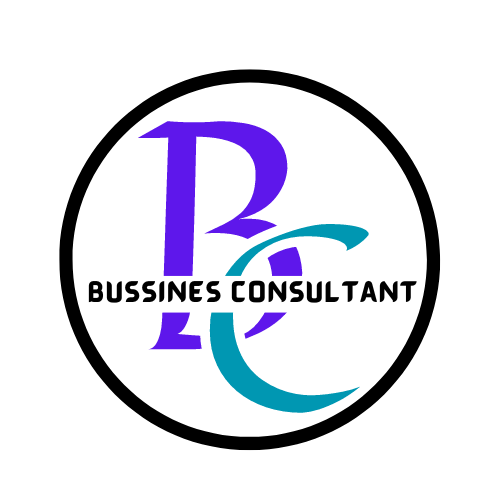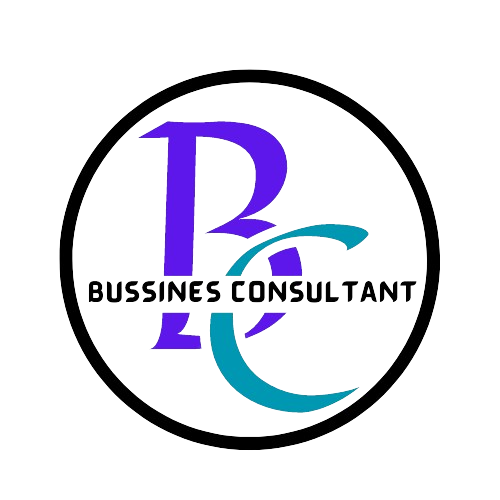Role of Business Consultant
Definition and Purpose
A business consultant serves as a guide and advisor to help businesses navigate their challenges. Essentially, they provide external expertise and insights that can be vital for startups. Their key objectives typically include:
- Identifying areas for improvement: They assess your business operation and pinpoint inefficiencies.
- Strategic planning: By offering long-term strategies, consultants can help map your business’s growth trajectory.
- Customizing services: Every startup has unique needs, and good consultants tailor their services accordingly.
The importance of this tailored approach means that the consultant’s work directly aligns with your startup’s goals and challenges.
Types of Business Consultants
There are various types of consultants specializing in different areas. Here are three common categories:
- Strategic consultants: They focus on long-term planning and help define your business strategy, ensuring that your startup has a clear vision for growth.
- Operational consultants: These professionals concentrate on the daily processes of your business, helping streamline operations and improve efficiency.
- Financial consultants: They specialize in budgeting, financial forecasting, and funding strategies to keep your startup financially healthy.
Benefits of Hiring a Consultant
Hiring a consultant can offer several benefits:
- Expertise and experience: Consultants often have years of experience in their field, providing insights and strategies that your team may not currently possess.
- Objective perspective: Their outsider viewpoint allows for unbiased insights that might highlight issues your internal team could overlook.
- Time saving: While they work on resolving specific challenges, your team can focus on core activities that drive your business forward.

Determining Your Startup’s Needs
Identifying Specific Challenges
To choose the right consultant, start by identifying what challenges your startup faces:
- Common issues: Startups often struggle with market fit, growth strategies, or operational inefficiencies.
- Assessing internal strengths and weaknesses: Take stock of your team’s abilities, resources, and knowledge gaps.
- Evaluating market opportunities: Conduct a SWOT analysis (Strengths, Weaknesses, Opportunities, Threats) to better understand the landscape you’re operating in.
Setting Clear Goals
After identifying challenges, it’s crucial to set clear objectives for hiring a consultant:
- Importance of clear goals: Defining what you aim to achieve can shape the consulting relationship.
- Examples of potential goals: This could involve increasing revenue, breaking into new markets, enhancing operational efficiency, etc.
- Creating a focused scope of work: A well-defined scope helps in selecting the right candidate by outlining what you need.
Evaluating Internal Resources
Consider what resources your startup already possesses:
- Assessing available skills: Look at what your team brings to the table – this will help you understand where you need outside help.
- When external help is necessary: If internal capabilities are lacking in critical areas, that’s when a consultant becomes essential.
- Balancing in-house capabilities and consultant expertise: Strike a balance that optimizes resource use without overwhelming your team.

Find Potential Consultants
Research Industry Experience
Industry knowledge can make or break a consultant’s effectiveness:
- Importance of industry-specific knowledge: A consultant with relevant experience will understand the nuances of your market.
- Finding consultants: Use online directories, professional networks, or word of mouth to identify potential candidates.
- Evaluating expertise: Look for consultants who have proven experience in startups similar to yours.
Checking Credentials and References
Before hiring anyone, it’s essential to vet them thoroughly:
- Key qualifications: Look for relevant degrees, certifications, and experience.
- Verifying references: Speak with previous clients to gauge their satisfaction and the consultant’s performance.
- Evaluating case studies: Review success stories that showcase how the consultant tackled similar challenges.
Exploring Networks and Recommendations
Tap into your network for potential leads:
- Utilizing your network: Leverage connections to gather recommendations, as this often leads to finding trusted consultants.
- Engaging with startup communities: Participate in forums or discussion groups to hear about experiences with various consultants.
- Attending industry events: Industry events and webinars can be a goldmine for networking with potential consultants.
Evaluating Candidates
Conduct Interviews
Interviews are a great way to assess compatibility and expertise:
- Prepared questions: Think of relevant questions to evaluate their experience and how it aligns with your needs.
- Communication style: Pay attention to how well you connect with them; good communication is vital for successful collaboration.
- Problem-solving approach: Assess their strategic thinking and how they would approach your specific challenges.
Review Proposals
A detailed proposal can say a lot about a consultant’s approach:
- Importance of proposals: Look for well-structured proposals outlining their strategy and methods.
- Evaluating timelines and deliverables: Understand what to expect and when, so you can assess their feasibility.
- Identifying challenges: A savvy consultant will also highlight potential roadblocks and how they plan to address them.
Assess Cultural Fit
Cultural compatibility can impact the success of the engagement:
- Shared values and vision: You should find a consultant whose values align with your startup’s mission.
- Gauging cultural alignment: Discuss past projects and how they collaborate with teams to get a feel for their cultural approach.
- Examining client feedback: Look at testimonials or reviews to identify how they interacted with other clients.
Engage and Collaborate with Your Consultant
Establishing Clear Terms and Expectations
Once you choose a consultant, clarify the terms of engagement:
- Drafting a well-defined contract: Include responsibilities, deliverables, and timelines to prevent misunderstandings.
- Agreeing on communications: Establish how you’ll communicate and provide feedback to foster a productive relationship.
- Setting milestones: Create short-term goals for monitoring progress and adjust as needed.
Encourage Open Communication
Keeping the lines open for dialogue is crucial:
- Regular updates: Ensure both parties schedule check-ins to discuss progress and challenges.
- Creating an honest environment: Encourage an atmosphere where feedback is welcomed and valued.
- Being adaptable: Be willing to reassess and change the project scope if necessary.
Measure Success and Learning from the Experience
Finally, evaluate the consultant’s impact regularly:
- Defining key performance indicators (KPIs): Develop specific metrics to evaluate if you’re achieving your goals.
- Conducting regular reviews: Use these checkpoints to ensure alignment and make changes if required.
- Integrating lessons learned: Document insights gained for future consulting engagements, enhancing your startup’s strategy over time.
Conclusion
Choosing the right business consultant for your startup can significantly impact your growth trajectory. By understanding the consultant’s role, assessing your startup’s specific needs, conducting thorough research, and focusing on a strong working relationship, you can find the expert who will take your business to the next level. Aligning your needs with the right expertise is key to achieving effective outcomes.
Consultants can offer services such as strategic planning, operational efficiency improvements, financial analysis, and market insights tailored to your specific needs.
Assess your team’s capabilities and identify gaps where external expertise can provide significant value to overcome specific challenges.
Costs vary widely depending on the consultant’s experience and the scope of work, so it’s essential to define your needs and explore various pricing structures.
Maintain open communication, set clear expectations, and foster an environment of trust and collaboration.
Red flags may include poor communication, lack of understanding of your industry, or inability to align with your goals and values.




